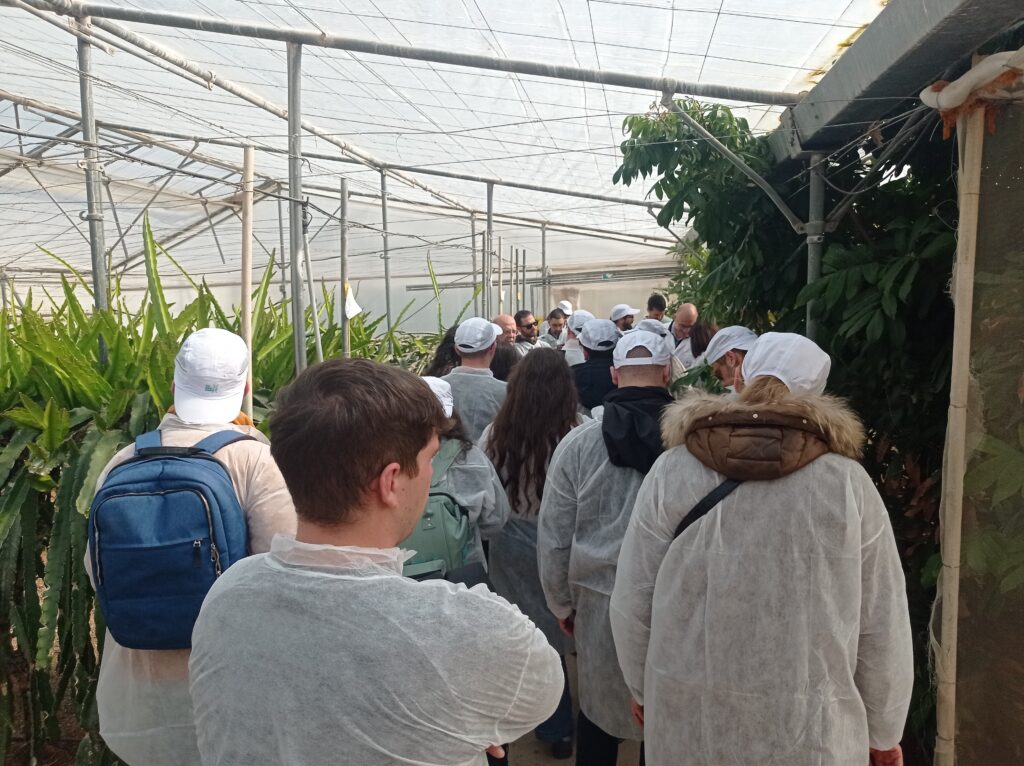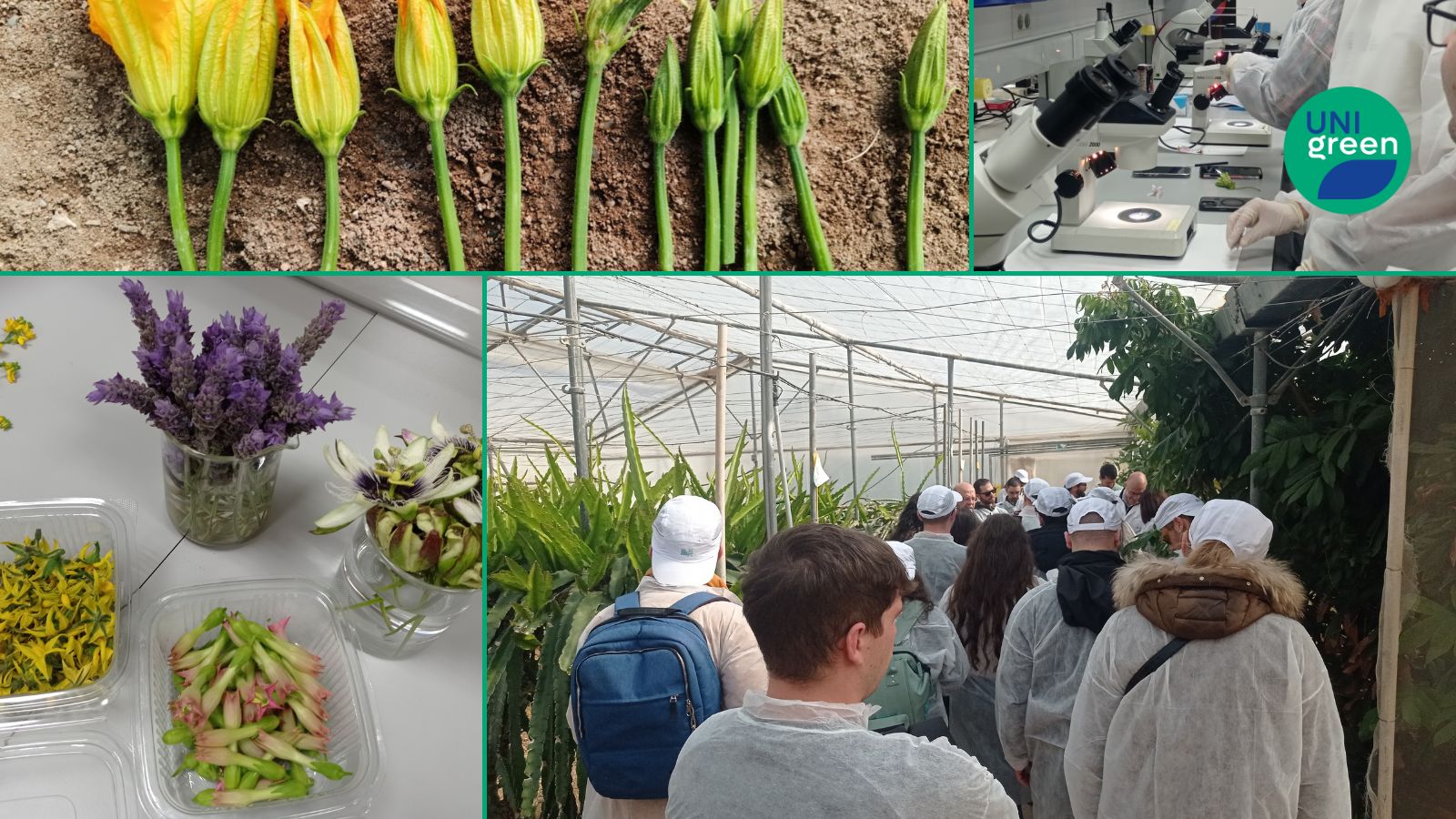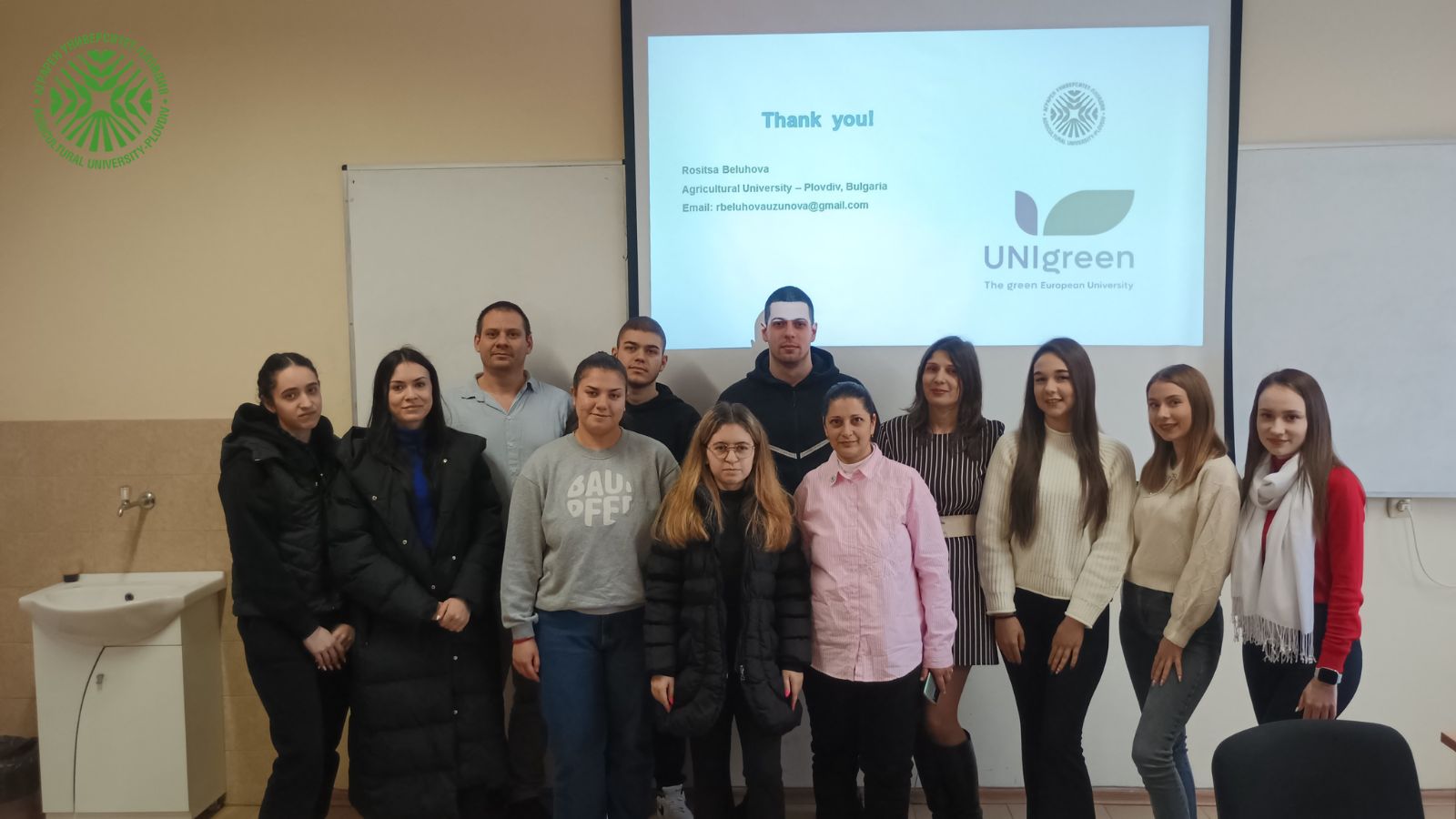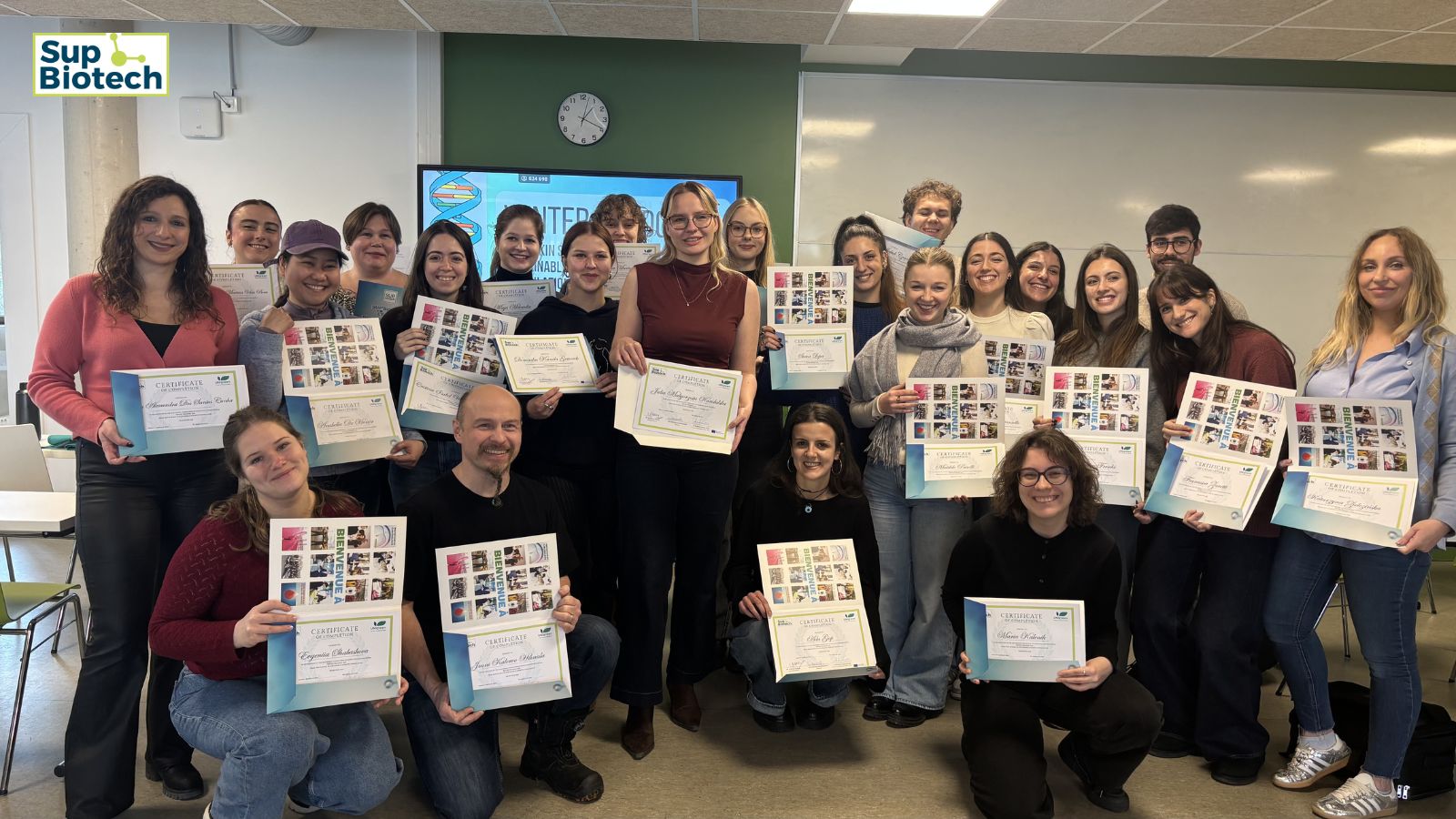A Erasmus+ BIP UNIgreen program at the University of Almeria trained for a week a group of students from 6 foreign universities in the assessment of fertility of cultivated plants.
The University of Almeria (UAL) organized a one-week intensive course on the assessment of floral fertility, entitled “From Flower to Fruit: Methods and Techniques for Assessing Floral Fertility”, from February 3 to 7.
The program, coordinated by Professor Julián Cuevas González, full professor Virginia Pinillos Villatoro and postdoctoral researcher Irene Salinas Romero, addressed the problem of lack of fruiting in cultivated plants, especially in protected environments where pollinator access is limited, as well as the climatic conditions that can affect plant fertility.
Participants were undergraduate, masters and PhD students in Agronomy, Botany, Plant Ecology, Biology, Environmental Sciences and Forestry from McMaster University (Canada), Alexandru Ioan Cuza University of Iasi (Romania), the University of Agronomic Sciences and Veterinary Medicine Bucharest (Romania), the Warsaw University of Life Sciences (Poland), the Polytechnic of Coimbra (Portugal) and the Università Degli Studi di Modena (Italy), the latter three being members of the UNIgreen European University Alliance coordinated by the UAL.

The main objective of the course was to train them in the fundamentals and methodology for assessing reproductive success and failure in cultivated plants, with a focus on the measurement of male (pollen) and female (gynoecium) fertility; on the measurement of floral attractiveness and rewards for pollinating insects, as well as their effect on insects; and on the assessment of reproductive success by measuring fertilization levels and initial and final fruit and seed set, as well as the analysis of fruit and seed abortion.
The course combined theoretical activities, online collaborative work and practical sessions in the laboratories of the UAL and visits to companies in the sector, such as Agrobio.




